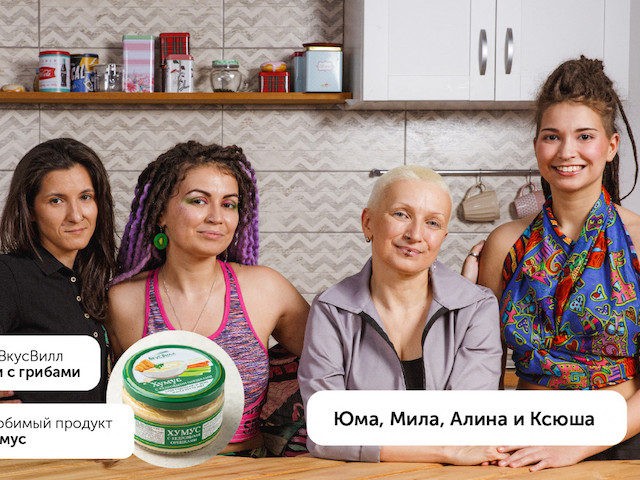A Russian lesbian couple and their daughters have “fled the country” for Spain after allegedly receiving death threats for starring in an advertisement for a Russian grocery store in recent weeks, the Moscow Times reported on Tuesday.
The family uploaded a photo to Instagram on August 1 and geotagged its location as Barcelona, Spain, according to the newspaper, indicating that they had arrived in the European metropolis from Russia.
“We’re safe, we’re resting. We don’t have to hide our happiness to be a family,” Yuma, described by the Moscow Times as “the matriarch of the family,” wrote in a caption accompanying the photo, which showed “the four-member family surrounded by palm trees and waving an LGBT flag on Sunday.”
“The family and Russia’s VkusVill grocery chain were last month targeted in what appeared to be a coordinated hate campaign after a nationalist and homophobic group spread the ad on social media,” the Moscow Times reported on August 3.
VkusVill pulled its ad featuring the family in response to the reaction less than one week after its initial publication. The retailer additionally issued a public apology saying it was sorry for “hurting the feelings of a large number of our customers, employees, partners, and suppliers.”
Russia passed constitutional amendments in July 2020 that included a referendum defining marriage as a heterosexual institution exclusively between one man and one woman.
Russian leader Vladimir Putin said he “would not let the traditional notion of a mother and father be subverted by what he called ‘parent number 1’ and ‘parent number 2′” while campaigning for the referendum.
“Yes, we passed a law banning the propaganda of homosexuality among minors. So what? Let people grow up, become adults, and then decide their own destinies,” Putin said on July 3, 2020. The Russian president made the comments to reporters while mocking the U.S. Embassy in Moscow for flying the LBGT rainbow flag. He referred to a law passed by Russia in 2013 banning “gay propaganda toward minors.”
About 75 percent of Russians oppose gay marriage according to the results of a recent poll by the Russian Public Opinion Research Center. The state-owned center surveyed 1,600 people across Russia age 18 and over via telephone interview on July 10 and found that 23 percent of respondents believe members of the LGBT community “are sick people who need medical help.” Another 11 percent of respondents said LGBT representatives are “dangerous people [who] … should be isolated from society.” An additional 13 percent of respondents said they believe homosexuality is “a social disease.”
Homosexuality was a criminal offense in Russia until 1993, while the Russian psychiatric establishment classified homosexual behavior as a mental disorder through 1999. Gay people continue to face societal persecution in Chechnya, which is a constituent republic, or a federal subject, of Russia. Homosexuality is a sin according to the Islamic religion. In Chechnya, where the population is majority Sunni Muslim, gays face a maximum penalty of death under sharia (Islamic law). Chechen leader Ramzan Kadyrov has increasingly imposed sharia on Chechnya in recent years, though the region officially remains subject to Russian law.
“Consistent with the Islamic rules implemented in many Muslim-majority countries, coming out as a homosexual is ‘tantamount to a death sentence’ in Chechnya,” Breitbart News reported in May 2017, citing an article by the Russian newspaper Novaya Gazeta. Kadyrov’s administration denied accusations it had launched an anti-gay campaign in the Russian republic in April 2017. Specifically responding to allegations by Novoya Gazeta that the Chechen government ran detention camps for gays, Kadyrov’s office said, “It is impossible to persecute those who are not in the republic.”
“If such people existed in Chechnya, law enforcement would not have to worry about them, as their own relatives would have sent them to where they could never return,” Chechen government spokesman Alvi Karimov said.

COMMENTS
Please let us know if you're having issues with commenting.